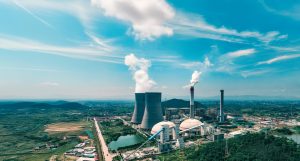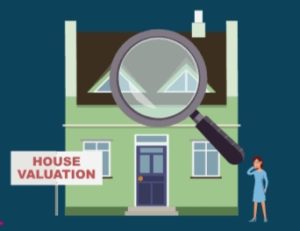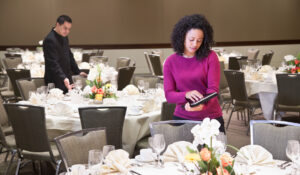Instrumentation and Control Engineering Training Course
Course Fee:
Upon completing this Instrumentation and Control Engineering course successfully, participants will be able to:
• To provide an understanding of the principles of operation of a range of sensors and transducers
• Exercise a hands-on approach, that will empower the delegate to investigate the operation of an instrumentation system through designing, building and testing typical sensor combined with appropriate signal conditioning circuits
• Familiarize and be confident with a range of measurement techniques
• Specify, indicate and design instrumentation systems for pressure, level, temperature and flow
• Identify and recognize a large number of industrial analytical measuring instruments
• Facilitate the following types of measurement: pH, conductivity, turbidity, hygrometry, dissolved oxygen, total free chlorine and on‐line chromatography
• Apply and Implement procedures for testing and calibration of analytical instruments
• Troubleshoot and identify problems with instrumentation systems
• Comprehend the concepts of Process Control and acquire the knowledge relating to the characteristics and properties of a process variable being measured
• Describe and explain the construction and operation of the most important analytical instruments
• Get acquainted and be knowledgeable in PID control and develop the ability to ‘tune’ a process control system using PID control
• Get knowledge of open and closed loop control and examples
• Get a good concept of difference between manual and automatic control
• Understand automation and steps performed by operator or the controller
• Know control actions and modes of controlIsolate control loops and detect a faulty instrument
Course Content
Introduction and Pressure Measurement
• Sensor and transducer
• General remarks
• Absolute and relative pressure
• Measurement Units
• Bourdon Pressure Gauges
• Differential Manometers
• Weight Manometers
• Structure and Functioning
Temperature Measurement
• General remarks
• Measurements Units
• Thermocouple
• Filled system
• Bimetallic element
• Thermometers
Flow Measurement
• General Remarks
• Measurement Units
• Flow Meter
• Coriolis Principle
• Head Flow Meters (Venturi Tube, Orifice Plate, Dall Flow Tube, Pitot Tube, Annubar)
• Rotameters (Variable Area Flowmeter, Glass Tubes, Metal Tubes)
• Turbine Flowmeters
• Positive displacement flowmeters
• Electromagnetic Flowmeter
• Ultrasonic Flow Equipment
• Vortex flowmeters
• Calibrated Diaphragm System
• Calibrated Tank System
Level Measurement
• General Remarks
• Level Indicators
• Hydrostatic Drive Meters
• Differential Pressure Gauges
• Radar level measurement
Analysers
• General
• Dew Point Analyzer
• Type of moisture measurement
• O2 analyzer
• SO2 analyzer
• PH analyzer
• Corrosion meter
• Datasheets analysis
Other Process Instruments
• Pressure Switches, Compact temperature switches, Level Switches Structure, Flow switches
• Position transmitters
• Pressure Relief Valve
• Solenoid Valves
Execution of Electric Connection for Instruments in Dangerous Area
• General Remarks
• EExd Execution
• EExi Execution (Passive Barriers-ZENER, Galvanically isolated active barriers)
The Importance of Process Control
• The importance of process control, introduction and definition of process control
• Reduce Variability, Increase Efficiency, Ensure Safety
• Control Theory Basics
• Components of Control Loops
• Types of Process Controllers
Controller Algorithms and Tuning
• Controller Algorithms
• Controller’s Tuning
• Proportional Mode
• Integral Mode
• Derivative Mode
• Controller Algorithms (Proportional, PI, and PID Control)
Process Control Loops
• Single Control Loops and examples
• Pressure Control Loops
• Flow Control Loops
• Level Control Loops
• Temperature Control Loops
• Multivariable Loops and examples
• Feedforward Control (Open Control Loop)
• Feedforward Plus Feedback
• Cascade Control
• Ratio Control
• Batch Control
Methodology
The training methodology integrates lectures, interactive discussions, collaborative group exercises, and illustrative examples. Participants will acquire a blend of theoretical insights and hands-on practical experience, emphasizing the application of learned techniques. This approach ensures that attendees return to their professional environments equipped with both the competence and self-assurance to effectively implement the acquired skills in their responsibilities.
DATE:
1ST BATCH: 24th – 27th Feb, 2026
2ND BATCH: 16th – 19th Jun, 2026
3RD BATCH: 13th – 16th Oct, 2026
Course Category
- Human Resource and Admin
- Finance and Accounting
- Internal Audit and Fraud Control
- Stores, Procurement and Supply Chain
- Information Technology
- Aviation and Maritime
- Banking, Investment and Insurance
- Business Communication
- Construction Management & Civil Engineering
- Engineering, Instrumentation and Maintenance
- Entrepreneurship and Business
- Hotel & Hospitality Management
- Law and Contract Management
- Management and Leadership
- Project Management
- Public Relations
- Public Sector
- Sales, Marketing & Customer Service
- Secretaries & Personal Assistants
- Transport & Logistics
- Security and Safety
More Courses
VENUE
25, Queen street, Alagomeji Bus Stop, Yaba, Lagos









